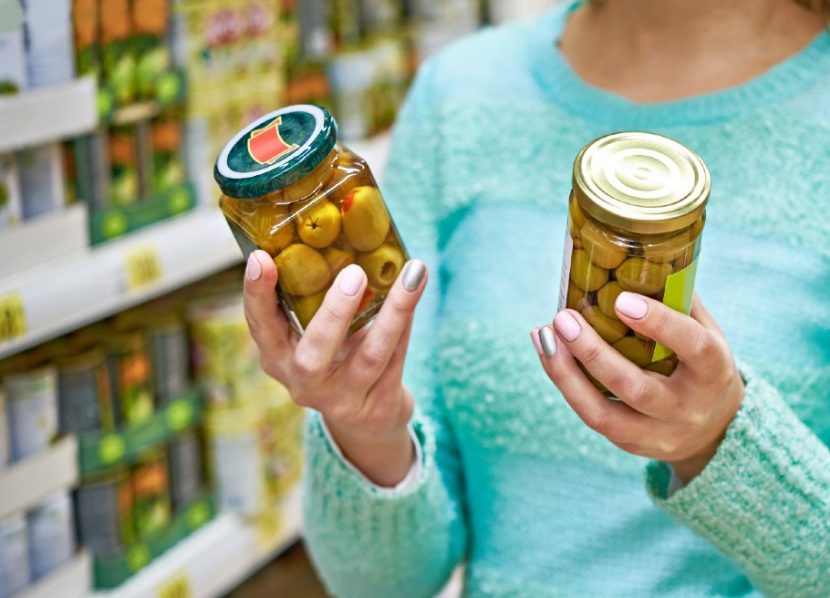Packaging Fraud on the Rise, Considered a Form of Food Fraud
By Karen Constable
Food supply chains have been under extreme stress in 2022, due to the combined effects of severe weather conditions, the Ukraine war, fertilizer shortages and inflation in some major markets.
Food manufacturers are experiencing these stresses as shortages of ingredients as well as increased costs of materials, energy and labour. Ongoing stresses in supply chains greatly enhance the motivation of food suppliers and manufacturers to sell and buy fraud-affected ingredients and finished products including food packaging materials.
Food Fraud in Food Packaging Materials
Packaging materials are an important component of finished food products, particularly when they are directly in contact with the food. Direct contact packaging known as “primary packaging” should be included in food safety hazard analyses and food fraud vulnerability assessments, and as it is also considered part of “food” fraud.
Direct contact packaging should be included in food safety hazard analyses and food fraud vulnerability assessments.
An emerging issue with primary packaging is related to the increasing emphasis placed on recycled content in polymer, also known as “plastic”, packaging. In recent years, several companies, and jurisdictions, have committed to ambitious targets for recycled content and this has led to an increased demand for recycled raw materials for plastic packaging.
There are few publicly available reports of food fraud in packaging, but this has nothing to do with the frequency of occurrence. A 2017 survey found one-third of primary packaging samples in the USA contained toxic fluorinated compounds; these are associated with cancer and other health effects.
Primary packaging is supposed to be made with raw materials that meet a high standard of purity. Recycling post-consumer items to meet purity standards require demanding and sophisticated quality control systems. As a result, not all recyclers are willing or able to meet the purity standards required for food packaging. With increasing demand for recycled packaging, we can expect to see challenges in the supply of sufficiently pure, food-grade recycled materials.
At the same time, the cost of major plastic packaging resins has increased by 49%. These price rises create opportunities for criminals to profit. They do this by misrepresenting the source or purity of packaging components, such as resins or films; or finished packages, such as containers.
Packaging that contains toxic materials can leach into the food itself, contaminating and poisoning consumers.
Many publicly reported food frauds are identified during border checks. Packaging materials, are a low priority for border-control food safety inspections where food fraud involving packaging goes undetected A few confirmed examples include: non-food grade resins and non-approved additives and coatings being represented as food grade, non-food-contact approved colourants used in place of approved colourants (“masterbatch”), forged laboratory reports (“migration testing” reports), false claims about the source or purity of recycled resins, false claims about the concentration of recycled components in finished packaging items.
Anti-Fraud Cooperation in 2023 and Beyond
A second notable trend in food fraud is the increasing cooperation between entities in various countries, provinces and continents. Both public and private entities are increasingly working together to understand, deter and detect food fraud at all levels of the food supply chain.
One example is the European Alert and Cooperation Network which last year recorded its highest number of exchanges of information related to food safety, feed safety and suspicion of fraud in food and feed.
An example of growing cooperation among private entities is the growth experienced by The Food Industry Intelligence Network. The network is a food industry consortium, a group of competitor food companies, that share food fraud information anonymously with each other. Their membership numbers and the amount of data shared have been growing steadily since 2015.
Operation Opson is a global law enforcement operation managed by Interpol and Europol that targets counterfeit and sub-standard foods and beverages. Year over year results in more seizures and the involvement of more law enforcement agencies from more countries. Opson X included 68,000 checks and resulted in the disruption of 42 criminal networks.
In 2021, Illicit products worth € 53.8 million were seized.
Takeaways
Stresses in supply chains have increased the motivation for criminals to participate in food fraud it is possible we will experience an increase heading into 2023, and we may seen an increase in green claims on packaging.
One positive trend stemming from this pressure on supply chains is the significant increase in cooperation among countries and jurisdictions in the fight against food fraud.
About the Author:
Karen Constable is an international food fraud prevention expert, Principal of Food Fraud Advisors consultancy and creator of the ultra-popular, always-free, open-access Food Fraud Risk Information Database on Trello. Get weekly updates from Karen by subscribing to her newsletter The Rotten Apple, an insider’s view on food safety, food fraud and supply chains for busy professionals.

-
 FeaturedRisk management
The Cost of a Breach: What a Cyberattack Could Mean for Food Safety Recalls
FeaturedRisk management
The Cost of a Breach: What a Cyberattack Could Mean for Food Safety Recalls
-
 FeaturedRisk management
Securing the Food Chain: How ISO/IEC 27001 Strengthens Cybersecurity
FeaturedRisk management
Securing the Food Chain: How ISO/IEC 27001 Strengthens Cybersecurity
-
 FeaturedRisk management
Revolutionizing Food Safety Training: Breaking Out of the “Check-the-Box” Mentality
FeaturedRisk management
Revolutionizing Food Safety Training: Breaking Out of the “Check-the-Box” Mentality
-
 GFSI Standards
GFSI 2025: Building Trust, Tech-Forward Solutions, and Global Unity in Food Safety
GFSI Standards
GFSI 2025: Building Trust, Tech-Forward Solutions, and Global Unity in Food Safety
-
 FeaturedFood Safety
Integrated Pest Management: Strategies to Protect Your Brand’s Reputation
FeaturedFood Safety
Integrated Pest Management: Strategies to Protect Your Brand’s Reputation
-
 FeaturedFood Safety Culture & Training
No Open Door Policy: Challenges That Impact Pest Control in Food Processing Plants
FeaturedFood Safety Culture & Training
No Open Door Policy: Challenges That Impact Pest Control in Food Processing Plants




